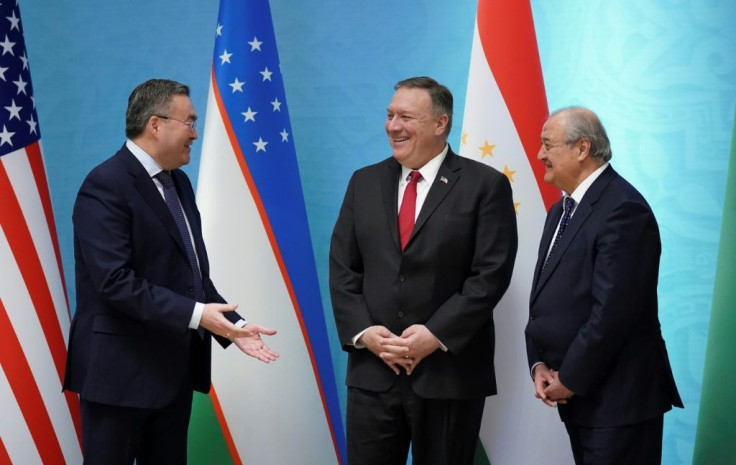Coronavirus Update: Uzbekistan Evacuates Its Nationals From China

KEY POINTS
- Uzbekistan has evacuated more than people from virus-stricken China
- China is Uzbekistan’s largest trade partner
- China has increased agricultural imports from Uzbekistan in the past few years
The state airline of Uzbekistan, a huge central Asian nation, said Wednesday that it has evacuated 84 people from Wuhan, China, the epicenter of a coronavirus outbreak, and will put them in quarantine upon their arrival in the capital of Tashkent.
Uzbekistan Airways also said the passengers were being accompanied by doctors and specialists.
On Tuesday, Uzbekistan evacuated 250 of its people from China and flew them home from Beijing.
Over the weekend Uzbekistan suspended regular flights to and from China due to the coronavirus epidemic.
On Monday, the President of Uzbekistan Shavkat Mirziyoyev established a special commission to prepare measures to block the entry of coronavirus into the country.
As of Feb. 1, no cases of coronavirus infection were recorded in Uzbekistan.
Separately, U.S. Secretary of State Mike Pompeo met with Uzbekistan Foreign Minister Abdulaziz Khafizovich Kamilov in Tashkent on Monday to lobby the support of Central Asian states against China over its poor treatment of its Muslim citizens, the Uighurs in Xinjiang, in western China.
Pompeo said he would promote the Uighur issue with five Central Asian nations - Uzbekistan, Kazakhstan, Kyrgyzstan, Tajikistan and Turkmenistan.
“As I did in Kazakhstan yesterday, in my private meetings today I plan to discuss... the Chinese Communist Party’s repression of Uighur Muslims, Kazakhs, and members of other minority groups,” Pompeo said.
On Sunday, Pompeo said the U.S. government urged “all countries to join us in pressing for an immediate end to this repression” and offer refuge and asylum to those Uighurs seeking to flee China.
However, despite the fact that these Central Asian republics are predominantly Muslim, they depend heavily on China for trade and investments.
“We want to see Central Asia as a region of stable development, prosperity and cooperation, and we would really not like to [suffer] unfavorable political consequences in relation to some competition in our region between large powers,” Kamilov obliquely said.
In response, China's embassy in Uzbekistan accused Pompeo of “slander” on Tuesday.
"No matter how many times it is repeated, a lie does not become the truth. Any attempt to slander China and sow discord in friendly relations between China and the states of Central Asia is doomed to defeat," the embassy said in a statement.
The United Nations estimate that up to 2 million people, mostly Uighur Muslims, have been placed in detention in China’s western Xinjiang province under Beijing’s “anti-terrorism” campaign.
Moreover, China has deep roots in Uzbekistan.
Last November, Chinese Premier Li Keqiang and Uzbek Prime Minister Abdulla Aripov vowed to increase their bilateral trade volumes and to encourage more Chinese companies to invest in Uzbekistan.
China is already Uzbekistan’s largest trade partner and the country's second biggest source of foreign investment. Bilateral trade volume amounted to $6.26 billion in 2018, up 48.4% over the prior year.
China has particularly increased agricultural imports from Uzbekistan in the past few years. The volume of fruit and vegetable imported by China surged by 118.6% in the first half of 2019, reaching $33.1 million.
Rainer Michael Preiss, a portfolio strategist based in Singapore, described Uzbekistan as possibly “the best under-the-radar investment story in the world today.”
Preiss noted that Uzbekistan is constructing a $1.7 billion business and financial hub in Tashkent.
“In just over two years, Uzbekistan has transitioned from an economic and social pariah to a free market economy,” he wrote. “[President] Mirziyoyev floated the exchange range, lifted capital controls and embarked on a privatization initiative to sell off the government’s interests in non-strategic businesses.”
Due to such reforms, tourist arrivals more than doubled in 2018 and foreign direct investments quadrupled in the first half of 2019 compare to the year-ago period.
© Copyright IBTimes 2024. All rights reserved.





















